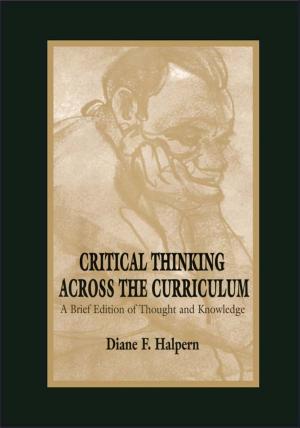Learner-Centered Leadership
Research, Policy, and Practice
Nonfiction, Reference & Language, Education & Teaching, Administration| Author: | ISBN: | 9781351560610 | |
| Publisher: | Taylor and Francis | Publication: | September 25, 2017 |
| Imprint: | Routledge | Language: | English |
| Author: | |
| ISBN: | 9781351560610 |
| Publisher: | Taylor and Francis |
| Publication: | September 25, 2017 |
| Imprint: | Routledge |
| Language: | English |
Many new approaches to school improvement are being proposed in the current climate of assessment and school accountability. This book explores one of these approaches, a new model of leadership training known as Learner-Centered Leadership (LCL). It is built around the fundamental idea that learning and learning communities are natural processes that, when properly harnessed, can lead to the highest levels of professional engagement and problem solving. Key features of this exciting new approach to school leadership include the following:
**Broad-based and Generative—**The book’s narratives vividly illustrate the extraordinary ability of LCL to generate new approaches to leadership development. For example, encouraging and assisting school leaders to reflect on their own leadership attributes relative to the implementation of the school mission to ensure high teacher efficacy and student learning. In this respect the volume contributes significantly to the field of school leadership and professional development by extending above and beyond a narrow focus on instructional leadership.
**Practice Oriented—**By creating communities that encourage conversation and analysis the new data-driven models of school improvement are more likely to be successfully implemented. Without analytical discourse, the process of interpreting school data and transforming it into practice would be largely lost.
**Conceptually Appropriate—**The realization that everyone within a school (students, teachers, administrators) belongs to the same learning community minimizes status differences and encourages teamwork. The LCL administrator is much less likely to be authoritarian and power-oriented and much more likely to be transformative and student outcome focused. This book is appropriate for master’s level courses and certification seminars, and for inservice workshops dealing with school leadership.
Many new approaches to school improvement are being proposed in the current climate of assessment and school accountability. This book explores one of these approaches, a new model of leadership training known as Learner-Centered Leadership (LCL). It is built around the fundamental idea that learning and learning communities are natural processes that, when properly harnessed, can lead to the highest levels of professional engagement and problem solving. Key features of this exciting new approach to school leadership include the following:
**Broad-based and Generative—**The book’s narratives vividly illustrate the extraordinary ability of LCL to generate new approaches to leadership development. For example, encouraging and assisting school leaders to reflect on their own leadership attributes relative to the implementation of the school mission to ensure high teacher efficacy and student learning. In this respect the volume contributes significantly to the field of school leadership and professional development by extending above and beyond a narrow focus on instructional leadership.
**Practice Oriented—**By creating communities that encourage conversation and analysis the new data-driven models of school improvement are more likely to be successfully implemented. Without analytical discourse, the process of interpreting school data and transforming it into practice would be largely lost.
**Conceptually Appropriate—**The realization that everyone within a school (students, teachers, administrators) belongs to the same learning community minimizes status differences and encourages teamwork. The LCL administrator is much less likely to be authoritarian and power-oriented and much more likely to be transformative and student outcome focused. This book is appropriate for master’s level courses and certification seminars, and for inservice workshops dealing with school leadership.















